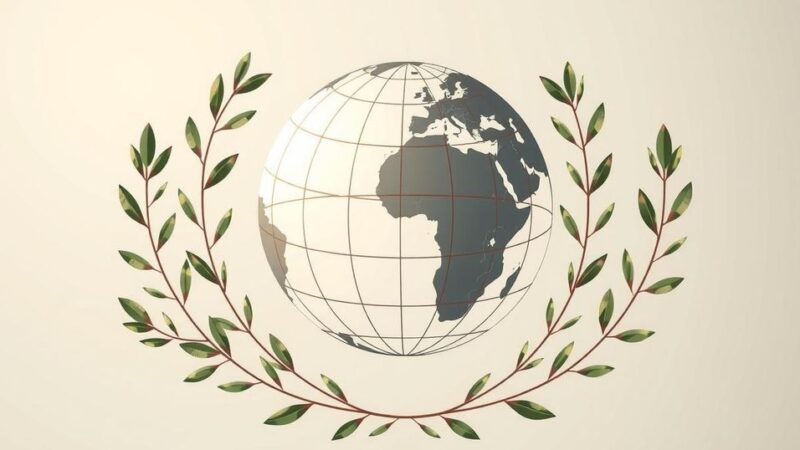South Africa grapples with deep-rooted land inequalities, a legacy of apartheid. A new expropriation act aims to redistribute land; however, international figures have misconstrued its implications. The act has faced criticism while South African authorities emphasize its necessity to rectify injustices. Misunderstandings about land seizures have added to tensions, revealing ongoing complexities within the nation’s racial dynamics.
South Africa has a complex history marked by land inequality, rooted in decades of racially discriminatory policies that marginalized non-White populations. The 1913 Natives Land Act severely restricted Black land ownership to merely 7%, a figure revised to 13% later. Today, Black South Africans constitute 81% of a population of 63 million yet hold only 4% of private land, highlighting the enduring legacy of apartheid-era injustices and current inequities as demonstrated in a 2017 government audit.
To address these disparities, South African President Cyril Ramaphosa has introduced a controversial expropriation act that permits the government to acquire and redistribute land to rectify past injustices linked to apartheid. Under this law, expropriation may occur without compensation in certain cases deemed “just and equitable” in the public interest; however, its implementation has yet to take place. Supporters argue this step is essential for fairness, as vast areas are still owned predominantly by White farmers amidst crowded living conditions for Black families.
The act has ignited a resurgence of racial tensions, capturing the attention of figures such as Donald Trump and Elon Musk, who allege that it discriminates against White farmers. Musk, who is South African-born, criticized the governing ANC party’s policies as “openly racist ownership laws,” a stance that has faced backlash from some White South Africans. David Van Wyk, a farmer from Bloemfontein, refuted Trump’s portrayal of White South Africans as victims, stating, “For Trump to create the impression that White people in South Africa are victims is nonsense…the majority of South African Black people still own nothing in the country of their ancestors.”
Opinions differ on the effectiveness of the Expropriation Act. Henk Smith from the Land Access Movement of South Africa called for just compensation for expropriated land except in specific instances involving negligent mining companies. Meanwhile, Trump’s recent executive order halted around $440 million in aid to South Africa, igniting fears of further ramifications, including the potential removal from the African Growth and Opportunities Act, which would negatively affect South Africa’s agricultural and automotive industries.
South African officials have decried misrepresentations of the Expropriation Act, characterizing them as “disinformation” that exacerbate tensions. AgriSA, a prominent agricultural organization, emphasized that no land has been seized without compensation or expropriated thus far. The Solidarity Movement, representing parts of the White Afrikaner community, refuted claims of widespread discriminatory land grabs, stating, “We did not accuse the government of large-scale race-based land grabs…”
While some right-leaning groups continue to assert that White farmers face unfair treatment, evidence refutes claims of an ongoing farmers’ murder crisis. The Institute of Security Studies has clarified that South Africa’s murder rate has increased across all demographics, indicating a broader issue of violent crime that affects numerous communities throughout the nation.
This analysis elucidates South Africa’s intricate struggle with land inequality stemming from apartheid. The Expropriation Act proposed by President Ramaphosa aims to rectify historical injustices but has stirred significant debate, particularly from international figures like Donald Trump and Elon Musk. However, assertions of widespread discrimination against White farmers have been largely contested, showcasing the complexity of the nation’s socioeconomic landscape. Continued dialogue and negotiation appear essential for achieving equitable land reform in South Africa’s context.
Original Source: edition.cnn.com






